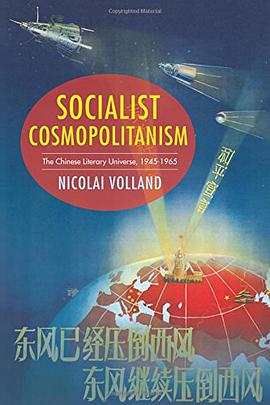Socialist Cosmopolitanism
豆瓣
The Chinese Literary Universe, 1945-1965
Nicolai Volland
简介
Socialist Cosmopolitanism offers an innovative interpretation of literature from the Mao era, proposing to read Chinese socialist literature as world literature. China after 1949 engaged with the world beyond its borders in myriad ways and on many levels—political and economic, cultural as well as literary. Far from rejecting the worldliness of earlier eras, Nicolai Volland demonstrates, the young People's Republic developed its own cosmopolitanism. Rather than a radical break with the past, Chinese socialist literature should be seen as an integral and important chapter of China's long search to find a place within world literature. Socialist Cosmopolitanism revisits a range of genres, from poetry and land reform novels to science fiction and children's literature, and shows how Chinese writers and readers alike saw their own literary production as part of a much larger literary universe. This literary space, reaching from Beijing to Berlin, from Prague to Pyongyang, from Warsaw to Moscow to Hanoi, allowed authors and texts to travel, in the course reinventing the meaning of world literature. Chinese socialist literature is driven by a hugely ambitious—and ultimately doomed—attempt to redraw the literary world map.
contents
Acknowledgments
Introduction
1. The Politics of Texts in Motion
2. The Geopoetics of Land Reform in Northeast Asia
3. Fictionalizing the International Working Class
4. Soviet Spaceships in Socialist China
5. Sons and Daughters of the Revolution
6. Mapping the Brave New World of Literature
Conclusion
Notes
Glossary of Chinese Characters
Bibliography
Index